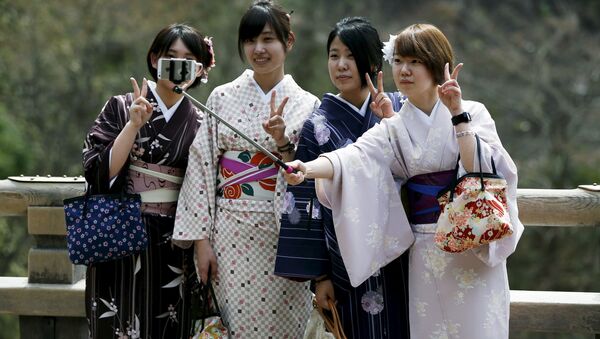The Japanese are a fairly homogeneous nation but, faced with the ongoing process of globalization, they need to adapt to the changing reality, including human resource exchanges and open up to the influx of capital and new technologies. Modern production begs for young, motivated and educated people.
According to Valery Kistanov, Koreans are the only sizeable migrant community to be found in Japan.
“There are tens of thousands of Koreans now living in Japan. There are Chinese, Europeans and Americans too, but they are a mere fraction of the indigenous Japanese population. I guess that Japan will soon have to see young women from the Philippines and Indonesia working as paramedics. In the past Japanese factories used to hire ethnic Japanese whose parents had immigrated to Latin America. I’ve seen such workers at a Toyota plant in Nagoya,” Kistanov said.
He added that Japanese employers prefer to hire people who have Japanese roots and who will not undermine the homogeneity of the Japanese nation and its traditions.
As for Japan following the EU’s example of setting mandatory migrant quotas, Alexander Panov, who joined the conversation, said he didn’t think the Japanese could be pressured on that.
“The Japanese once scrapped visas for Iranians, hence the large number of Iranians you can now find there, including in Tokyo.”
The experiment proved quite short-lived though because the Japanese quickly realized that the Iranians did not fit into their cultural milieu and created a lot of problems. They do allow limited migration though. Philippine women look after Japanese old folks, but are barred from engaging in other medical activities.
“That’s why I have strong doubts about Japan throwing its doors wide open to foreign workers any time soon. Especially with the present level of automation and robotization at their enterprises,” Alexander Panov said.





